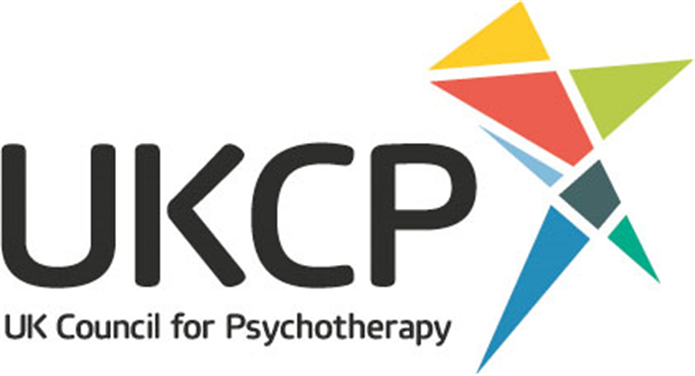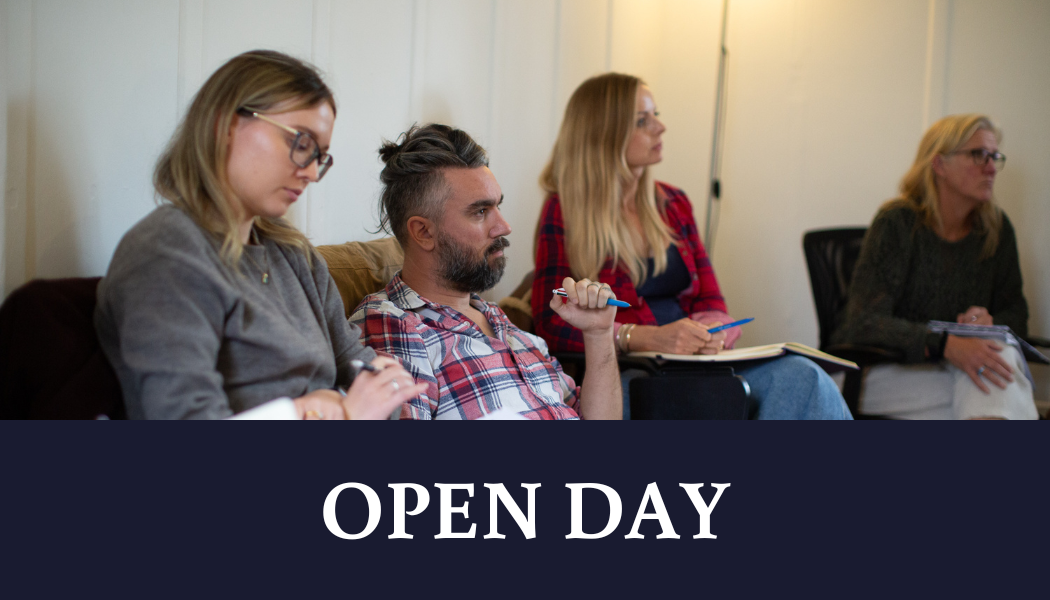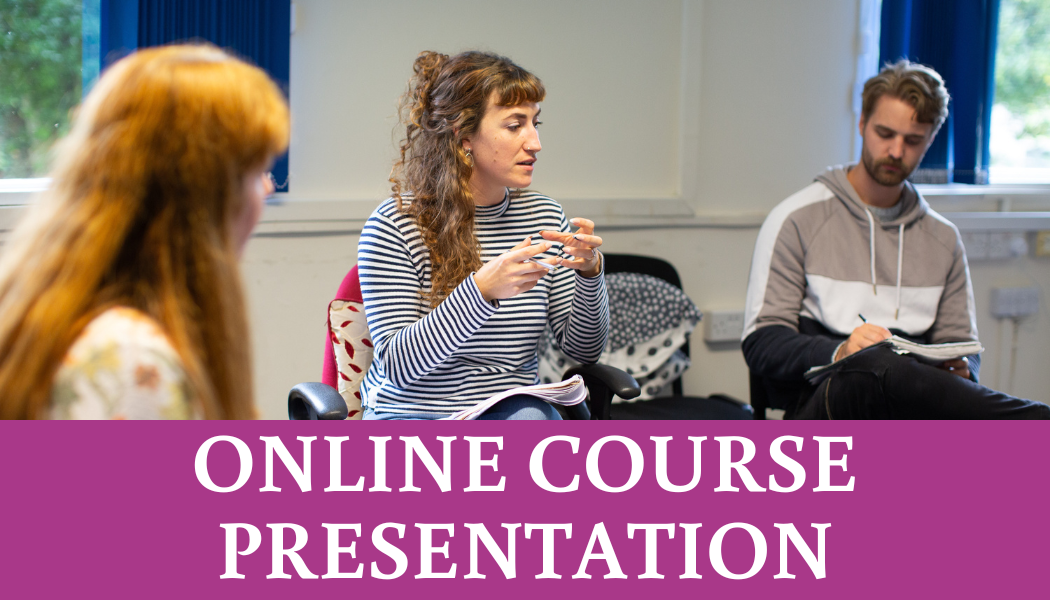TA Psychotherapy Foundation Course (Transactional Analysis)
Part-time | 9 Months | UKATA Accredited | Exeter
Register for our online talk - What is Psychotherapy TA 101 Workshops How to become a psychotherapist Application Form Why study this course at Iron Mill College?
Why study this course at Iron Mill College?
This course provides an essential grounding in TA theory and in its application in our personal and professional lives. It's open to students who wish to know more about TA, to inform their professional practise in the fields of psychotherapy, counselling, education and organisations, as well as those who wish to undertake training in TA psychotherapy.
Tutors on the course are all highly experienced Transactional Analysis psychotherapists, supervisors and trainers. They are committed to providing creative learning experiences that are based on the experiences and needs of the learning group. This course is accredited by UKCP.
Iron Mill College TA Psychotherapy Foundation Course students are entitled to 25% discount on all CPD workshops while they study with us, and on completion of their course as IMC Graduates. In addition, those students progressing to an eligible Advanced course with us will be entitled to 50% discount on all CPD workshops while they study with us
Course description:
-
This Foundation course covers the main theoretical bases of TA in detail.
-
Students will be able to apply this theory within their personal and professional lives, to provide insight and change in those situations.
-
The course prepares students to enter the 3-year Advanced TA psychotherapy course.
-
The course runs over 9 weekends, October to June, in Exeter.
-
A TA101 is the 10th weekend and needs completing before or during the foundation year.
-
The course is run with manageable size groups, (usually not more than 12), which allows us to concentrate on individuals and make the training highly responsive to students’ needs
-
Transactional analysis is used in many different fields, in addition to psychotherapy, including business management, education, and medicine. It is considered a highly effective method to enhance self-awareness and the ability to relate to others
If you have an enquiry and wish to speak to a member of our team, please contact 01392 219200 or email enquiries@ironmill.co.uk.
Want to know more?
Student testimonials
Where can this course take you?
This Foundation year leads into the rest of the TA psychotherapy programme and can also be taken as a stand-alone course for personal and professional development.
The emphasis is on the application of TA in the fields of psychotherapy and counselling. is The training is also applicable in the other two fields of TA (organisations and education).
Some students will therefore use the experience of the Foundation year to inform their personal and professional lives, or to apply to study further in Counselling, Psychotherapy or Organisational and Educational fields of TA. The Advanced TA psychotherapy training can lead to qualifying as a UKCP-Registered psychotherapists and as Certified Transactional Analysts with a specialism in psychotherapy.
What will you study?
Content for each of the 9 weekends is as follows:
- Fundamentals of TA, ego states and transactions, and the Adult Ego State.
- Archaic Child Ego States: A developmental perspective.
- Parent ego states formed from environmental influences and culture.
- Scripts, as personal defences and protection in personal, cultural and organisational contexts.
- Games and Rackets – ways of protecting ourselves and furthering our Script.
- Self-perpetuating Strategies, Strokes, Time Structuring.
- TA and group dynamics. Transference, and its relation to group relationships.
- Different Approaches in TA
- Contracting and the application of TA.
- Where next? And starting in voluntary placements.
A key part of each weekend is also dedicated to the development of counselling skills, so that students who wish to train as psychotherapists will be ready to start seeing clients in placement in the first year of the Advanced TA psychotherapy course.
How will you be taught and assessed?
The learning experience:
The course consists of experiential exercises, mini-lectures followed by small group and large-group discussions, observed skills practise, and self-reflective work.
In line with our Advanced TA psychotherapy course, the integrating principle of this course is a relational approach to TA. Therefore, we place an emphasis on relationships in all their forms, including dynamics that our outside awareness. Dialogues exploring these with group members are important learning opportunities.
The tutors work within a radical-relational approach to education. This means social and political context is taken to affect our psychodynamics. The curriculum is covered, but some key elements will evolve as an emergent process, in discussions within the group.
Assessments:
The programme incorporates a range of assessment methods, in order to avoid over-emphasis on one particular range of skills. We use both formative and summative approaches to assess trainees’ progress throughout the course.
Summative assessments are:
- Two 2000-word assignments
- A presentation at the end of the year on a chosen piece of TA theory and its relevance for you
Formative assessments are:
- Attendance at all training dates – students are expected to attend all the sessions; if they miss any there is an absolute requirement that they attend 80% of the course hours
- Participation in experiential exercises, skills practice, self-reflection and the training group process
- Participation in individual tutorials
- Engaging with personal psychotherapy – this is not assessed but the hours of personal therapy are monitored
- Meeting our Personal and Professional readiness criteria to enter and/or progress within the course
Award:
Students receive a certificate of completion for the course. Students who are members of UK Association for TA (UKATA) and who complete the course would also be eligible to apply for the UKATA Transactional Analysis Award.
Course dates
Venue: Exeter
October
Starts Saturday 12th and Sunday 13th October 2024, weekend intake in Exeter. Please visit the 'Downloads Tab' to view the full course schedule.
Application process and fees
How to apply:
- Submit your application form which can be found in the 'Application Form'. Once your application form has been received, an interview would be arranged. Payment for the £750.00 deposit will be charged once an offer has been given.
- If you require assistance in completing your application, please contact admissions@ironmill.co.uk.
- We advise applicants to have completed a TA 101 workshop before or within their first year before starting the Advanced TA Psychotherapy course. You will need to have completed a TA 101 workshop before your second year of study. Please click here to view our TA 101 workshops.
Courses commencing on and between 1st Jan'24 - 31st Dec'24:
- Option 1 - Total Payable - £2,900.00
An Enrolment Deposit of £750.00 (Non-Refundable) followed by one instalment of £2,150.00. - Option 2 - Total Payable - £3,100.00
An Enrolment Deposit of £750.00 (Non-Refundable) followed by two instalments of £1,175.00. - Bespoke Payment Plans - Total Payable - £3,100.00
In order to facilitate students, we have introduced Bespoke Payment Plans which can be tailored to meet your specific needs. Please contact the admissions@ironmill.co.uk for more information.
Further information on fees:
Fees listed include VAT.
Tuition Fee Increases:
Tuition fees are reviewed in Autumn each year and are usually increased in line with CPI each January.
Final application date:
The deadline for applications is 4 weeks before the start of the course. A decision will be made on whether the course will run, based on confirmed and accepted places, 4 weeks before the start date of the course. Any applications received after the 4-week deadline will only be processed at the discretion of the Programmes Lead. If this is the case, please contact us for further details as soon as possible.
Intake interviews will be arranged for suitable applicants. Applicants who are offered a place will be required to confirm acceptance in writing accompanied by an Enrolment Deposit of £750.00, which is non-refundable
Selection for interview:
Selection is on the basis of information provided in your application (as above). We will send you an invitation to come for an interview once these documents are in place.
This will include a group discussion and an individual interview. You will be given notice of the day and time and sometimes there is flexibility to negotiate. Generally, interviews start with a group question and answer session and are followed by individual meetings.
The following personal and professional readiness criteria are used as part of the assessment of whether students are ready to progress from the Foundation Year in TA to the Advanced TA course, and to progress from year to year in the Advanced TA course. Therefore, at interview for the Foundation Year course, we ask you to consider these criteria, and be able to identify and discuss those that you would find most challenging. You will be sent a copy of these before your interview.
Students should show the capacity to:
- Relate from a stance of respect and mutual interest.
- Communicate in an open and respectful manner
- Show evidence of awareness of professional and ethical standards.
- Take responsibility for your physical and emotional well being.
- Take an active and shared responsibility for getting your learning needs met in the course.
- Cope with the varied demands of the course including the fulfilment of financial obligations, the timely completion of assignments and active participation in the course, e.g. discussions, sharing of case material, live work under supervision in the large group, small group exercises and group process.
Students should demonstrate a growing ability to:
- Be aware of your own process and communicate it when appropriate in a coherent and open way, relating it to the course content when relevant.
- Give constructive feedback. receive constructive feedback, reflect upon it and make use of it.
- Learn to deal with the challenge of unhelpful feedback.
- Demonstrate a capacity for self reflexivity.
- Be active in the group process component of the course.
- Be aware of the boundary between therapy and training in a way that the training task can remain foreground.
- Relate course content and theory to practice.
- Integrate new material with previous theory and ideas.
- Be aware of the limitations of your level of expertise and work within it.
- Participate in skills exercises and the clinical practice component related to the course content at a level of competence appropriate to the stage of training.
- Experiment and learn from mistakes.
- Experience uncertainty and difficult feelings without becoming rigid, demanding or incapacitated by anxiety.
FAQs
How long is the course?
4 years of formal teaching. 1 year of the Foundation course and 3 years of the Advanced TA psychotherapy course. This is followed by a dissertation year when you need to accumulate enough supervised clinical hours to qualify, (450 hours), write a dissertation and prepare for a viva exam.
How does each year work?
The Foundation course is 9 weekends, October to June, (+the TA 101). The Advanced course is 10 weekends, September to July, no weekend in April. Once the course has started, the group is closed so no one else can join the group.
Is it always weekends, in Exeter?
Yes, all the course is based around weekends, and at the moment, they are all in Exeter.
What are two parts of the course about?
During the Foundation course, we cover a huge amount of TA theory, at depth. At this stage, the theory is applied to people’s work situations and personal lives, as most people are not in practice at this time. TA theory can be applied in four fields: Psychotherapy, Counselling, Education and Organisations, and the Foundation course is designed to look at all these fields. There is also a strand running through the Foundation course of developing counselling skills, so students are ready to start in practice once they start the Advanced course.
The Foundation course gives students a good grounding in TA theory for the rest of the Advanced course. In that part of the course, we look at psychotherapy specifically, how TA theory has been applied in this field, and at theories from other modalities that are relevant to this.
Why is it 4 years?
The course leads to registration with the UKCP, UK Council for Psychotherapy, and to qualification as a Certified Transactional Analyst through the European Association for Transactional Analysis (EATA). There is a requirement for at least 600 training hours, and duration of training are set out by those organisations. Within the section of the UKCP that TA belongs to (The Humanistic and Integrative Psychotherapy College), psychotherapy courses must be at least 4 years long and at MSc level, (that is level 7 in terms of professional and academic qualifications).
Can I take time out?
There is a natural break between the Foundation and Advanced course and it is not unusual for some students to ask for a break or for the tutors to discuss this with them. Sometimes, this is about health or family reasons and sometimes there is a need for students to do more personal therapy before continuing. So, stopping training for a year then re-starting training is manageable, and not unusual.
How do I qualify?
Students who complete the requirements of the 4 year course are awarded an Iron Mill diploma in TA psychological studies.The Iron Mill diploma allows people to register with BACP as a qualified psychotherapeutic counsellor. However, this is not a qualification to use the title psychotherapist. This can only be used once you have passed your UKCP dissertation and the viva exam. The Iron Mill offer a dissertation year after year four to support students through these final stages.
How do you complete the CTA?
To get the second qualification, this course offers, trainees can expand their UKCP dissertation and undertake another Viva that is very similar to the UKCP one. The difference is that the CTA covers couples and/or groups as well as individual hours. Trainees need 50 group hours as well as a further 250 hours of using Transactional Analysis in any relevant professional setting, (such as pastoral care and management. These hours may also be clinical). This takes time and accounts for the depth and breadth of the work in becoming a psychotherapist and a Certified Transactional Analyst.
What qualifications do I need to apply?
The course is an MSc level course, (so level 7), so students need to be prepared and able to work at that level. That does not mean you need to have a first degree, as many people successfully completing the programme have not been in formal further education. However, you will need to show you have emotional availability, that you can reflect, think and have capacity to meet the demands of the course. We consider professional qualifications, other relevant training (such as counselling-skills courses) and people’s motivation. We discuss this before application and during the interview. The Foundation course is also a good ‘tester’ of your capacity as it is between degree and MSc level.
Do I need to have done a TA101 to apply?
The TA101 is a useful ‘taster’ for TA and for the way we think about it and teach it at the Iron Mill, so if you can attend one that will help you in your decision-making. You will need to do a TA101 if you apply for the course.
Do I need to have done counselling courses to apply?
Not necessarily, but this is helpful. You may be able to go straight into the Foundation course without having done any counselling skills courses or the Iron Mill Certificate in counselling. A portion of the Foundation course is dedicated to developing counselling skills. Developing counselling skills is a part of the training and an important component of our ongoing assessment throughout the Foundation course.
What if I haven’t already learnt counselling skills?
There is teaching and development of these skills, and formal feedback on them, throughout the Foundation course.
What if I’ve done some TA already, can I skip the Foundation year?
This is worth discussing with the course leader. However, the requirement for the Advanced course is that students have completed at least 120 hours of training in TA, and this is generally only fulfilled by TA Foundation courses.
What if I’ve already done a counselling course?
Each year we have some people on the TA psychotherapy course who have completed a counselling course. Sometimes they want to learn about TA on the Foundation course, sometimes they want to develop their practice and become qualified as a psychotherapist. This is therefore a common path for TA trainees, and we welcome trainees who already have had these experiences.
I’ve missed the start of the Foundation course this year, what can I do?
It can be frustrating to find that you’ve just missed the start date of a course. There are other things you can do in the meantime. If you haven’t already attended a TA101, we strongly recommend you do that, so you have a good idea of what the TA Foundation course will be like. You could also do some reading and start to work in therapy if you’re not already doing so. We’d also recommend that you speak to the TA lead tutor, as s/he can discuss other options and directions for you. Finally, as the TA course is a big undertaking, with a lot of commitments from the students, then we really encourage prospective students to take their time in applying. In that context, having time to research the course, look into TA, and to think about your motivation is time well spent in the long-term.
What are the course requirements of the Foundation course?
- Attendance of at least 80% of the course. (The expectation is that students will attend all of the course, so they also need to make up any theory that they do miss.)
- There are two written assignments of 2000 words each.
- A presentation at the end of the year.
- We also recommend that people keep a learning journal.
- We strongly recommend that all trainees start or continue in weekly personal therapy during the Foundation course. This is mandatory for anyone who is going to continue into the Advanced course. There is no requirement for clinical practice during the Foundation course.
What are the course requirements of the Advanced course?
- Attendance of at least 80% of the course. (The expectation is that students will attend all of the course, so they also need to make up any time they do miss.)
- Two written assignments of 3000 words each, one of 1500 words
- A research project
- A presentation at the end of the year
- A learning journal from which there is a 1500 word informal written assignment based on your personal development
- Students need to be in weekly therapy
- During the first year of the Advanced course students need to find a placement and start clinical practice.
- They also need supervision every other week, and at least monthly supervision with a TA supervisor. (So many students have monthly supervision with their TA supervisor and monthly supervision in their placement.)
What are the course requirements for UKCP Registration
In addition to 600 training hours, 160 therapy hours, supervision hours , (one hour for every six hours of practice), students need to undertake a mental-health familiarisation placement in their local area so they have an understanding of how patients with mental health problems can be assessed and treated. At the end of their training period, trainees then complete a dissertation and a viva, which your supervisor and the Iron Mill support you with.
What are the qualifying requirements for the CTA?
In addition to UKCP requirements, trainees can extend their dissertation, complete couples or group hours, (50) and undergo a viva run by our European professional body (European Association of Transactional Analysis). The CTA is an internationally recognised qualification as well as being necessary for any experienced practitioners to further their careers by becoming supervisors and trainers.
Who can be my psychotherapist during training?
Therapists need to be UKCP-registered psychotherapists, preferably in the Humanistic and Integrative College. However, psychodynamic and psychoanalytical psychotherapists are also relevant. They do not need to be TA psychotherapists.
Who can be my supervisor during training?
TA supervisors need to be a Provisional Teaching and Supervising Transactional Analyst, or Teaching and Supervising Transactional Analyst with a psychotherapy speciality.
What are the differences between TA and an integrative course?
TA is itself an integrative model, that has been developed over the last 60 years, and incorporates elements of both psychoanalytic and humanistic models. As the theory was all developed under the ‘umbrella’ of TA, the models integrate very well, different parts of the theory fit well together and can communicate well with each other. This makes the theory very robust. The challenge of an integrative course is to make your own integration from different pieces of theory that did not develop together so may not fit together so easily.
Is TA too limiting as a model compared with an integrative course?
TA is used across the spectrum of practices, from cognitive–behavioural work to a relational psychoanalytic approach and is highly adaptable to different practitioners and contexts. TA theory is deceptively simple at a first look, but has great depth, so it allows us to work with people with complex mental health problems, problems related to their development, and to do depth psychotherapeutic work.
Clients are not generally interested in the model of counselling or psychotherapy a practitioner uses, but simply in whether they believe they can work with that person. This is appropriate as it’s the therapeutic relationship that is a key factor in the success of the work.
Why psychotherapy? What is the difference between psychotherapy and counselling?
This is a complex and political question, and you would get a different answer from different practitioners. However, the qualifying process for psychotherapy is longer and generally practitioners would be trained to work for longer periods with people. One way of thinking about it is that counselling often works with the person in their situation to deal with current problems and increase their strengths, resources and functioning in their professional, social and cultural context. In TA terms, this is work with the Adult, here and now, Ego state. Psychotherapy aims to address and heal fundamental, developmental and relational issues for a person that are limiting them – ‘to deal with the past in the present, so they are free to live their lives in the future’. In TA terms, this is work not only with the Adult, but also the Child and Parent Ego states. At its best, the aim is to develop more radically people’s personality structure. This would often be in the context of long-term work.
What clients could I work with?
The psychotherapy training (it’s length, level of study and requirement for personal therapy and a mental-health familiarisation placement), equips graduates to work with clients with a wide spectrum of problems, including mental-health disorders (though some are still best worked with in hospitals). This may mean that psychotherapists are able to work within the healthcare system, and that they have competence to work with a variety of clients (under supervision) in private practice.
Accredited by

Leading to registration

Why Iron Mill College?
Iron Mill College offers accredited courses, academic standards, experiential learning, experienced lecturers with student focused training and classes.




